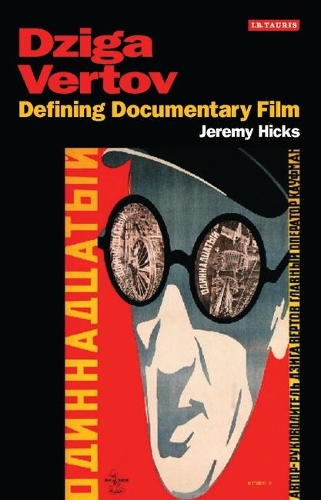
Dziga Vertov: Defining Documentary Film
(Paperback)
Publishing Details
Dziga Vertov: Defining Documentary Film
By (Author) Jeremy Hicks
Bloomsbury Publishing PLC
I.B. Tauris
30th March 2007
United Kingdom
Classifications
General
Non Fiction
791.43658
Physical Properties
Paperback
208
Width 138mm, Height 216mm
Description
Pioneer of political documentary and inventor of cinema verite, Dziga Vertov has exerted a decisive influence on directors from Eisenstein to Godard. Yet his reputation long rested upon a lone masterpiece, 'Man with a Movie Camera'. Recently, however Vertov has begun to be recognised as the creator of a body of innovative and distinct films and, as Jeremy Hicks argues, documentary as we know it today is unthinkable without the rediscovery of Vertov. This, the first book in English to cover the whole of Vertov's career, reveals him to be an auteur, allowing readers to combine the familiar and less familiar aspects of his filmmaking and thinking in a cohesive narrative. Jeremy Hicks demonstrates how Vertov draws on Soviet journalistic models for his transformation of newsreel into the new form of documentary film. Through analyses of "Cine-Pravda No 21" (Leninist Cine-Pravda), "Cine-Eye", "Forward Soviet!", "A Sixth Part of the Earth", "The Eleventh Year", "Man with a Movie Camera", "Enthusiasm", "Three Songs of Lenin", and "Lullaby", he shows how Vertov's greatest works combine authentic documentary footage ingeniously for tremendous rhetorical effect. Today, with the energetic revival of interest in documentary film, Vertov's reflexive and overtly partisan films are of great relevance; but they need to be better known and understood. This is the purpose of "Dziga Vertov - Defining Documentary Film".
Reviews
''...the first English-language monograph devoted entirely to the career of Russia's greatest documentary filmmaker...a valuable contribution to English-language scholarship on early Soviet cinema and an important resource to all those of us who teach the history of Russian or documentary cinema...'' Anthony Anemone, Slavic and East European Journal
Author Bio
Lecturer in Russian at Queen Mary, University of London. His publications include 'Mikhail Zoshchenko and the Poetics of Skaz', a translation of Zoshchenko's short stories, and articles about Russian film.
